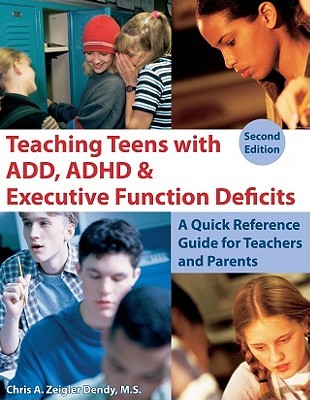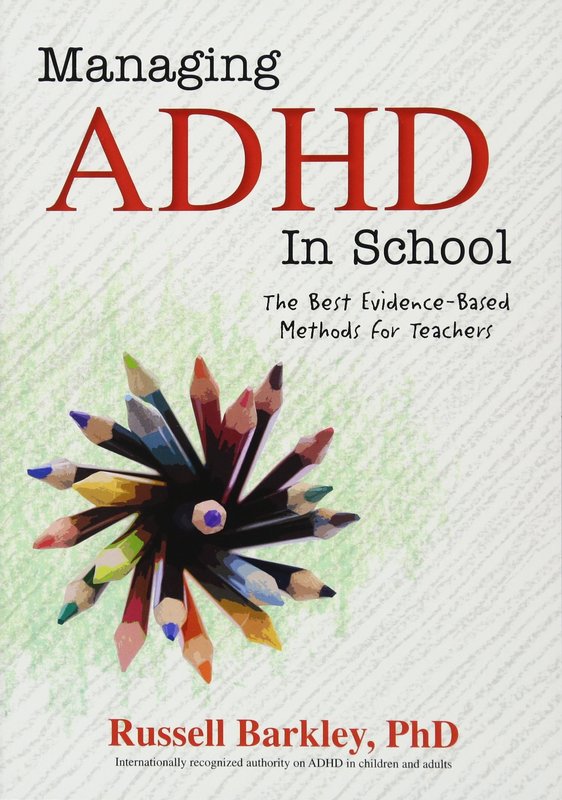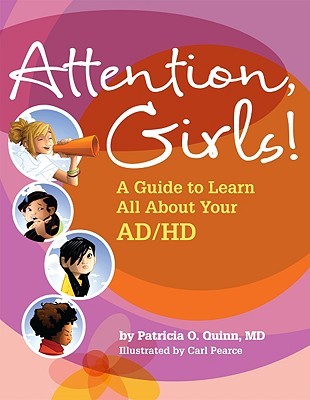AuthorDr. Carrie McMillin is a naturopathic physician that specializes in treating adults and children with ADHD and anxiety. Archives
February 2023
Categories
All
|
Back to Blog
I often speak to teachers and school administrators about how to better understand kids with ADHD and how to help them succeed, and the question "Where can we find more resources and techniques" almost always comes up. Teaching Teens with ADD, ADHD, & Executive Function Deficits by Chris Zeigler Dendy, MS is definitely on my short list of recommended reading. This book goes a bit further in depth than other teaching books I have reviewed about how executive function deficits affect learning, citing specific challenges associated with each execution function. It also makes a more distinct connection between ADHD and executive functions.
I like that this book is geared toward teens in particular, and also talks about ADHD while still detailing specific executive functions. The areas where we see the greatest struggles in overcoming executive function deficits is often very different between elementary students and teens, therefore it is helpful to have a resource for teen-specific tools. I also really like that there is a section on legal rights for students and how these apply to ADHD, including IDEA. Some general strategies for working with teens are given, such as using time limits for working memory deficits. But the greater value of the book comes in the specific inventions that are given, most of which I have listed below. There is a fairly thorough section on time management struggles as well--more than what I've found in most books. Areas covered: - Modifications for assignments and testing - Tips for working with disorders of written expression and math difficulties - How to set up various tools such as graphic organizers, weekly reports, etc. - Plentiful lists of resources (online, local, books, etc.) - Thorough explanations of 504 and IEP plans - Support for managing challenging behaviors in the classroom, broken down by specific behavior issues - Section on conflict resolution, peer mediation, violence prevention, and anger management If you are just beginning to explore ways to help your child or student in school, or just learning about 504s/IEPs for the first time, this book is going to be very overwhelming. But it is ideal for the teachers who have a basic understanding of working with kids with ADHD, and need more specific tools and ideas for the classroom. It is also fantastic for parents who have to offer a lot of at-home school support, or are having difficulty finding 504 accommodations or an IEP plan that works. Book info: Teaching Teens with ADD, ADHD & Executive Function Deficits: A Quick Reference Guide for Teachers and Parents (2nd ed.) by Chris A. Zeigler Dendy, M.S. Woodbine House; Bethesda, MD; 2011.
Back to Blog
If you haven't yet heard of Dr. Russell Barkley, he is considered one of the foremost authorities on ADHD today. He has written many excellent books, gives informative talks (some available to view online), and does a pretty amazing job helping people to understand ADHD. His newest book, Managing ADHD in School: The Best Evidence-Based Methods for Teachers (PESI, Inc.; 2016), is very brief (less than 100 pages) but with the advantage of giving very succinct information. It offers a good starting point for understanding the connection between ADHD and executive functions, as well as how executive function deficits present in the classroom setting. There are some good general guidelines for working with students which will be helpful for both teachers and parents, such as remembering to "externalize information". Executive function deficits often make it difficult to rely on internal reminders to do various tasks (ex. take your vitamin), it is usually helpful to have visual cues and reminders to trigger this behavior (ex. write a note on the mirror, set vitamin bottle near coffee pot, etc.) Additionally there are specific tools given, such as a detailed sample of a Daily Behavior Report Card that can be copied. Dr. Barkley includes a small chapter on additional techniques for managing teens, as well as a section that explains ADHD medications.
If you are a parent of a newly diagnosed child who is beginning the 504 process, this is a great book to start with. It is also a good introduction to how to successfully work with kids with ADHD from a teacher's perspective. On the other hand, if you are already familiar with the basics of working with students with ADHD, this book doesn't offer much for you. Instead I would look into How to Reach and Teach Children and Teens with ADD/ADHD by Sandra F. Rief or Promoting Executive Function in the Classroom by Lynn Meltzer.
Back to Blog
In most situations, I think it is extremely important for kids to be familiar with how ADHD may affect them. This helps to foster a positive self image, and limit the negative self-talk that I often see persist into adulthood. Too many times patients come into my office using words like "lazy" or "stupid" when talking about their day-to-day struggles--which is almost always due to hearing these words directed at them since childhood. So I am always on the lookout for well-written books for children about ADHD.
Attention Girls! A Guide to Learn All About Your AD/HD by Patricia O. Quinn, MD (Magination Press; 2009) is one of my favorite books for kids, and I recommend it to almost every young girl who comes into my office. This book is aimed at older elementary/adolescent girls, but can be helpful for parents to look through as well. The format is what I consider "ADHD friendly", allowing for jumping around easily to different sections, and with text broken into small chunks. Illustrations are also well done, meaning up-to-date and engaging. The first part of the book explains ADHD, using character descriptions of different girls with ADHD who present very differently. I particularly like this aspect of the book, as it is easy to read and helps girls to relate to and understand these characters, even if they see parts of themselves in several different ones. The book goes on to give examples of ways to manage ADHD symptoms, tools that may be helpful, and who to talk with for more support. There is also a fairly kid-friendly section on understanding medication, stressing that only the reader, her parents, and her doctor can decide if medication is the right choice for her. I always encourage parents to read books on sensitive topics before sharing them with their child, to ensure it delivers information in a way that you are comfortable with. I find this book is a great introduction for girls to understand ADHD and how it affects them. It is a quick and engaging read, with a positive yet realistic tone. Recommended for ages 8-13. |
 RSS Feed
RSS Feed


